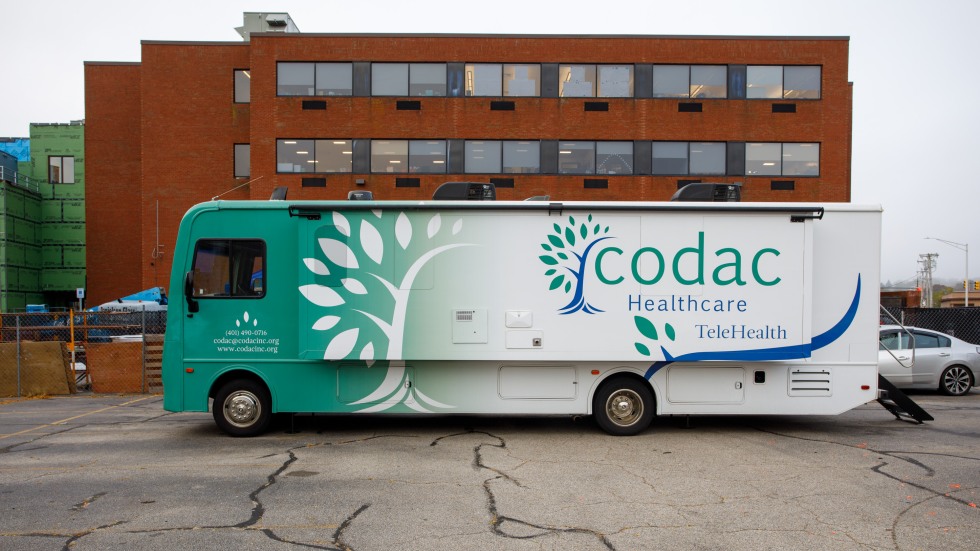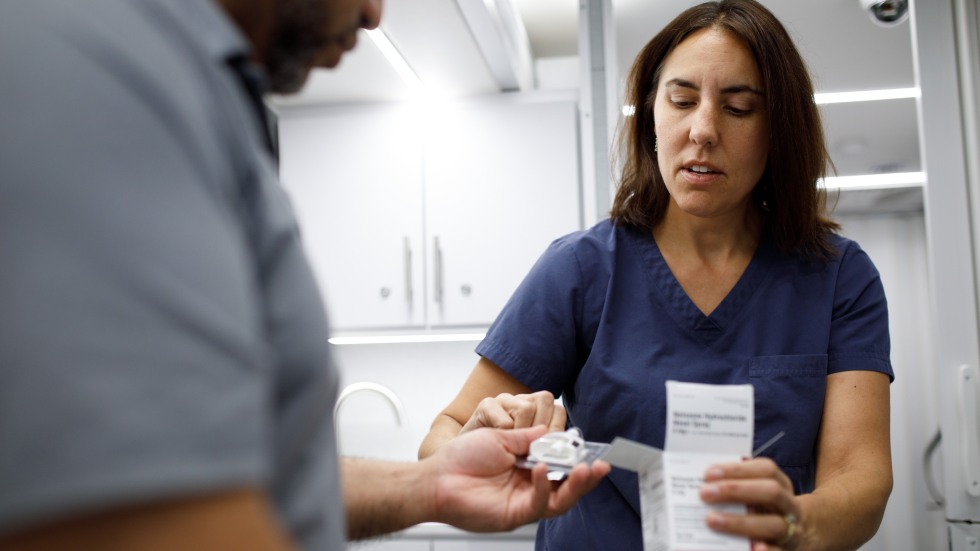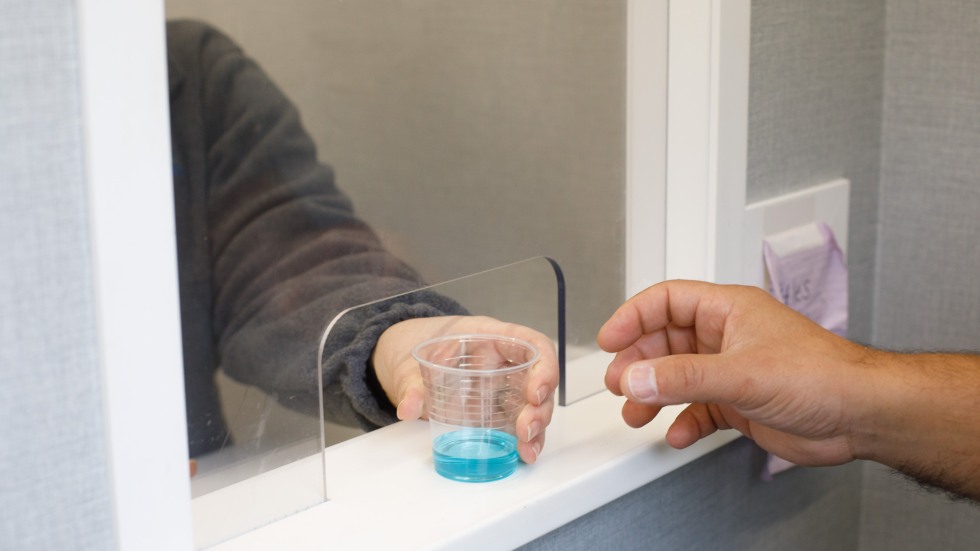WOONSOCKET, R.I. [Brown University] — Dr. Francesca Beaudoin, an addiction medicine specialist, emergency room physician and epidemiologist, has been on the frontlines of the opioid crisis for most of her career.
Early on, she saw its impacts during her residency as an E.R. doctor in the mid-2000s, when opioid prescribing was at its peak. According to Beaudoin, opioids were everywhere: “I was watching people come into the emergency room both trying to obtain opioid medications for an underlying opioid use disorder, but also people with ill-treated pain.”
Yet no one fully understood the crisis that was coming. “We didn't see the lights on the train in the tunnel at that time,” Beaudoin said.
By 2010, the epidemic was transitioning from prescription opioids to illicit opioids as well as fentanyl and its analogs. In response to what Beaudoin saw every day in the emergency room, she shifted her focus from pain management to the opioid crisis.
For the past year, Beaudoin, a professor of epidemiology at Brown University’s School of Public Health and a professor of emergency medicine at the Warren Alpert Medical School, has spent part of each week caring for people affected by the opioid crisis. But Beaudoin doesn’t see patients at a hospital or in a traditional clinic setting. Instead, she travels to Woonsocket, Rhode Island, where she works at a mobile recovery van on a busy, well-trafficked street near a bus stop.
The 27-foot-long R.V. is run by CODAC Behavioral Healthcare, a nonprofit based in nearby Cranston that provides treatment, recovery and prevention services to local individuals and families. Inside, there's a counseling room that can fit four, a bench where people can wait, a bathroom, desk, security system, refrigerator stocked with snacks and an area for dispensing medications like methadone, which blunts the effects of opioids and reduces cravings and withdrawal.
There are also staff members, including a nurse, a driver, a physician such as Beaudoin and peer recovery coaches who connect patients with insurance and help with housing, food and employment services.
Their goal is simple, Beaudoin said: To provide medication assisted treatment without the barriers or stigmas that often come with going to a clinic, in a flexible setting within the communities where people need it.
“We know that the proportion of methadone clinics that are in the community do not meet the needs of the patients — particularly when those patients don’t have housing or transportation,” Beaudoin said.
CODAC’s mobile unit, the first of its kind in the United States, is able to go directly to the areas where there are the highest rates of opioid overdose — it brings treatment to the people who needs it most. What’s more, Beaudoin added, when the van isn’t being used for methadone treatment, it can serve as a medical outreach unit, offering on-site treatment for people without housing, for example.
It took time for the idea of the recovery van to take off. At first, Beaudoin said, the staff focused on building awareness. “We spent a lot of time outside actually just talking to anybody that would come by to call attention,” she said. Eventually, word got out and people responded. There are now over 60 patients engaging with the unit, according to Beaudoin.


